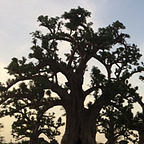Journey Beyond the Colosseum
When I was a kid growing up in eastern Sierra Leone, I learnt about the river Tiber, the Colosseum, and other marvels of Roman civilization. So, during a trip to Rome in 2004, two of the first places I promised to visit were the Tiber and the Colosseum. I happened upon the Tiber on my way with a colleague somewhere else. I wasn’t at all impressed by the river. Given everything I had heard about the Tiber, from my first reading of Julius Caesar to our furrows into Roman history in school, I was expecting to see a more physically imposing liquid realm. But there I was, in front of a river that did not even measure up to the Moa River that runs through my mother’s birthplace. After this low point, I counted on the Colosseum to rise in redemption of Rome.
My first reaction upon seeing the Colosseum, also known as Flavian Amphitheatre, was similar to the one I had when I visited the Pyramids of Giza in Egypt. Or when I first saw the Maya pyramids in a National Geographic documentary. When we see these imposing structures, we tend only to see the so-called great men and great civilizations that conceived them. Is it possible to tell the full story of the Colosseum, or of the pyramids of Giza and Machu Pichu? Another way to ask the question: How much of ‘the full story’ do such monuments and statues tell us about the men and times they represent or are supposed to represent? How much do they tell us about those of us who continue to engage with them today? To begin to answer these questions more faithfully and truthfully, we have to see through and beyond that which stands in front of us. We must see the countless ‘little people’ whose lives were upended so that the dreams or desires of ‘great men’ could be realized. And this we must do deliberately. This is a necessary exercise in self-reflection.
This poem, instigated by my 2004 visit to Urbs Aerterna, is an accompaniment to a piece I wrote on statues and monuments in 2020 (see: https://bit.ly/3sKFtEu )
Journey Beyond the Colosseum
As I stand here in awe scrutinizing the great Colosseum
that tells the story of one man or a tiny few,
I hear a galaxy of voices drowned in the orchestrated cacophony of history’s silence.
I see slaves and gladiators biting the blood and sweat-drenched dust.
I smell and inhale the rancid breadth of the shackled criminal
and Ignatius Theophorus facing their damnatio ad bestias.
And I taste the food for the multitude unfit even for the vermin of this earth.
Beyond the din of paeans to Emperors and Senators,
I discern the whimper of the orphaned girl whisked away
to a strange land to slave the rest of her unsolicited existence
in the solitary confines of the owners of fellow beings.
As I stand here contemplating the grandeur of the Flavian whim,
I feel the imposing circle of oblivion suck the victims of greatness into its insatiable orbit,
only to belch the contentment of its almighty masterminds.
Overwhelmed by the torrent of unvoiced stories
Entombed deep in the crevices of the gift to Romans,
I feel the earth tremble beneath the weight of our self-induced amnesia.
